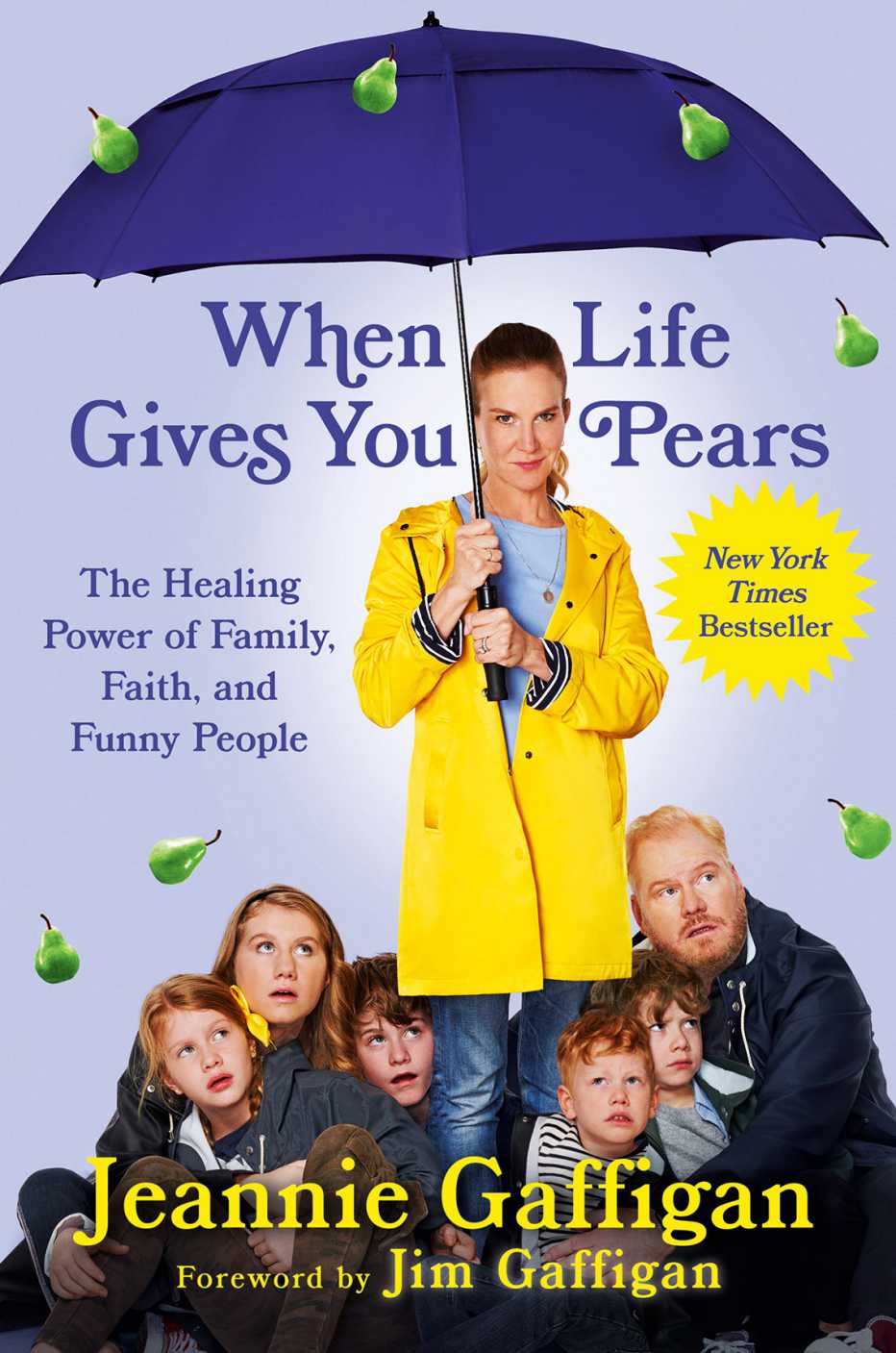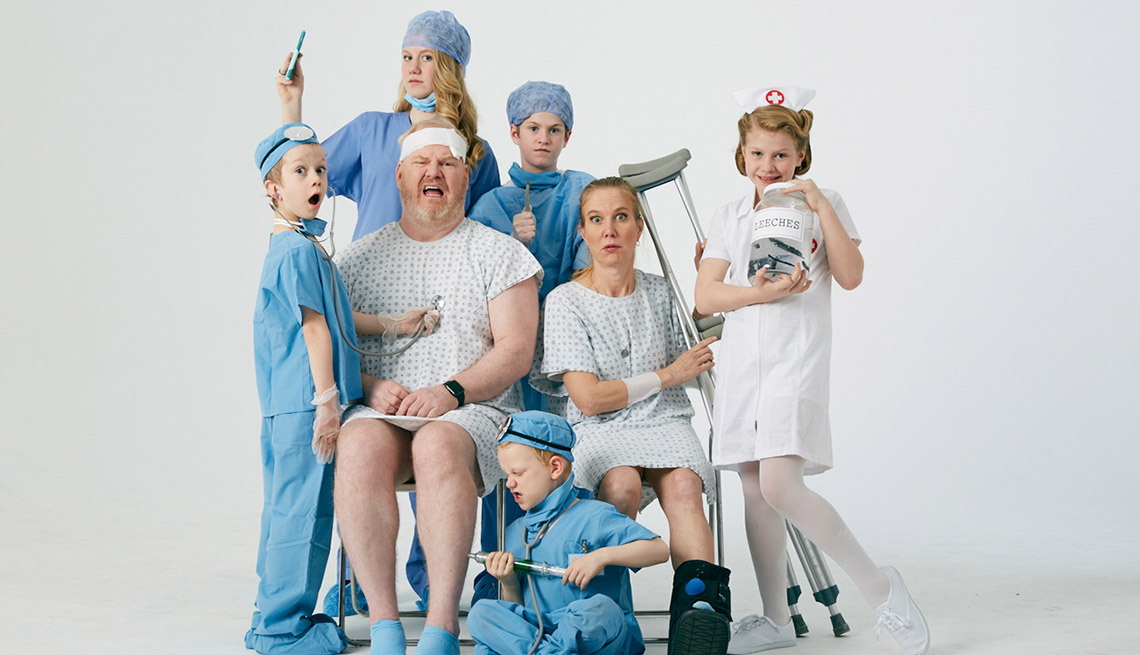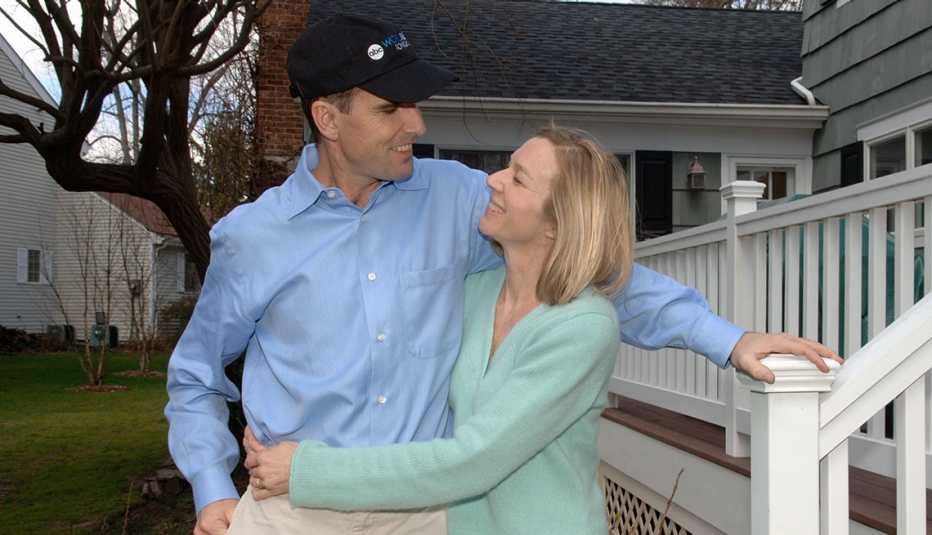AARP Hearing Center
For a couple who make their living in comedy, there was nothing remotely humorous about Jeannie Gaffigan's diagnosis of a life-threatening pear-shaped brain tumor in 2017.
That stunning diagnosis in the doctor's office was when the world stopped turning for the hyper-organized and hugely competent mother of five and wife and writing partner of popular comedian Jim Gaffigan. A very scary pear-shaped bomb had just been tossed into their jam-packed lives.
"In addition to making deals with God,” says Jeannie, “all I wanted to do was live and be a Victoria's Secret model."


Jeannie Gaffigan's book When Life Gives You Pears is her witty and honest take on what happened when an unexpected tumor forced the couple into a Freaky Friday switcheroo. Suddenly Mom was the patient and Dad had to take over as caregiver and main parent-in-charge in the midst of fear, grief and uncertainty. Or, as she says with humor, “Jim understood what it's like to be Jeannie and Jeannie understood what it's like to be in bed and have other people wait on you.”
This book is about so many universal themes: love, family, faith and coming out the other side with a different perspective. But at its heart, Jeannie writes honestly about the issue that plagues so many mothers and caregivers, that unrelenting pressure we put on ourselves to do it all and do it our way.
It's the story of how illness and bed rest forced her to confront her “demons and control freak nature” and helped the Gaffigan family “make pear-ade out of pears.”
While Jeannie lay in the hospital, she knew Jim lacked the skills to deal with the home front. “He was like, ‘What are the names of the kids’ teachers? Wait, what are the kids’ names?'” she jokes. “But he stepped up in big ways. This kind of triage changed our team-ship, and we got stronger through it.”





































































